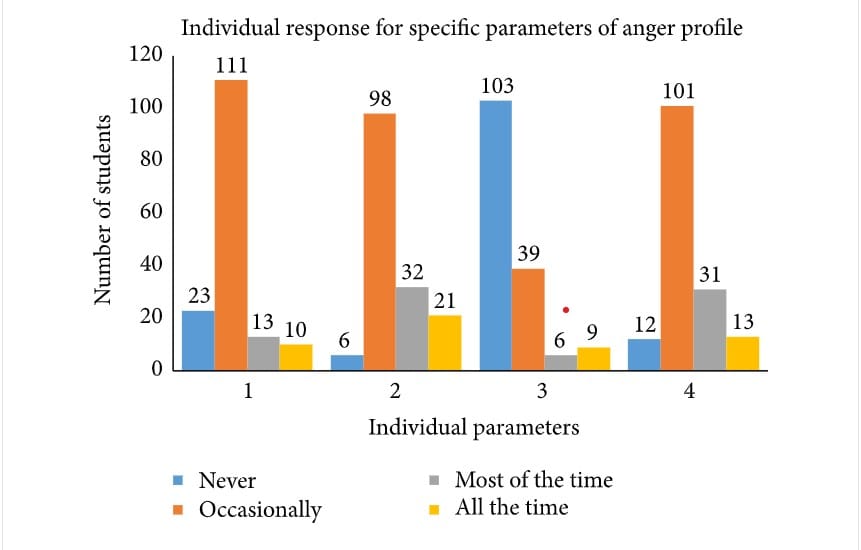Anger is not a ‘bad’ but a normal and healthy human emotion. Studies have found that it enhances honesty and optimism and leads to successful negotiations. But outbursts or other strong ways of expressing can be problematic. For instance, you might end up yelling at your kids, threatening your colleague or resorting to physical violence. The prevalence of poorly controlled, inappropriate and intense anger in 34,000 surveyed US adults was 7.8%. It is most common among men causing compromised psychological functioning.

Image Source: https://www.verywellmind.com/anger-management-strategies-4178870
Anger management is not about never getting pissed off. It means working through issues without aggression to avoid regrets later on. The process will involve techniques to put you back in control via recognizing, defusing, learning to think before you act and using anger constructively. Losing temper 15 times a day is a realistic average which is triggered by emotional hurt when we are mistreated, injured and opposed. It is an unavoidable feeling which may cause stress hormone flow or high blood pressure. If you feel ‘short fuse’, display verbal cruelty or get frequently annoyed, below are a few ways to cope in productive ways.
1. Consider a Treatment
It takes little to trigger a ‘rageaholic’. But it goes a long way to impair your health and your bonds with friends and family. Some 84% of people surveyed in NPR-IBM Watson Health poll said that Americans are angrier today compared to a generation ago. You might set off a defensive or angry mode in people around you which can lead to severe discords. A good idea is to talk to a therapist to substitute helpful responses for angry ones. What underlies anger is fear or hurt and expressing these is more useful than expressing rage. An expert can teach you how to deal with them in a non-destructive way to radically transform yourself.
2. Identify the Warning Signs
A few tell-tale symptoms which may cause you to lash out are gritting your teeth, shaking, feeling anxious, tight chest, a ‘flash’ of a bad mood and being argumentative. Start acknowledging them consciously. Admitting to feelings will help experience internal release both mentally and emotionally. You will be able to address these issues in an assertive manner instead of bottling up and enduring them. For instance, wait till the anger has simmered. It reduces the chances of damaging consequences.

Image Source: https://www.hindawi.com/journals/edri/2016/7461570/
3. Get Moving
More than 1 in 10 which is 12% of people complain they have trouble with anger. Try to put the sudden surge to good use by letting steam off. It can be in the form of going for a run, swimming, walking around or doing household chores. It reduces hostile thoughts and helps clear your clouded mind. Studies found that those who were into regular exercise exhibited low levels of state anger and high levels of control. You are less likely to perceive stress, anxiety or depression due to anger. Consider a 20-minutes power walk thrice a week and then increase as per your requirements.
4. Take a Power Nap
Not getting enough sleep makes is tough to do even the simplest tasks like watering plants or remembering your to-do list. Anger starts to control you emotionally when you are deprived of rest. Irritability, impatience, fatigue and mood swings follow which exacerbate a situation. Losing as little as 2 hours of sleep can make you angrier than usual.

Image Source: https://mymind.org/self-care-good-sleep-as-part-of-mental-health
Try to get at least 7-8 hours of shut-eye every night. You will be exhibiting fewer flare-ups and aggressive behaviors like banging a door or breaking plates.
5. Try to Relax your Mind
Anger is linked to the ‘fight, flight, or freeze’ response from the sympathetic nervous system which is tied to basic survival emotions like sadness or disgust. Navigate the feelings of ‘boiling blood’ with heavy breathing. This is highly effective and can become a simple strategy to manage your anger anywhere. Try to read a few pages from a book, listen to soft music, cool your muscles or talk to a close friend. Download relaxation apps like White Noise or Headspace equipped with scientifically proven approaches for cognitive-behavioral therapy. Users are less likely to hold grudges or maintain an ‘anger log’.
There are plenty of daily personal, professional and social incidents that can amplify your anger. Taking drastic steps may fulfil your needs right away but is not feasible in the long run. Get in touch with therapists for assistance. Practice gratitude, empathy and forgiveness, if possible. You may also consider following the above-discussed tips to increase the quality of life.

